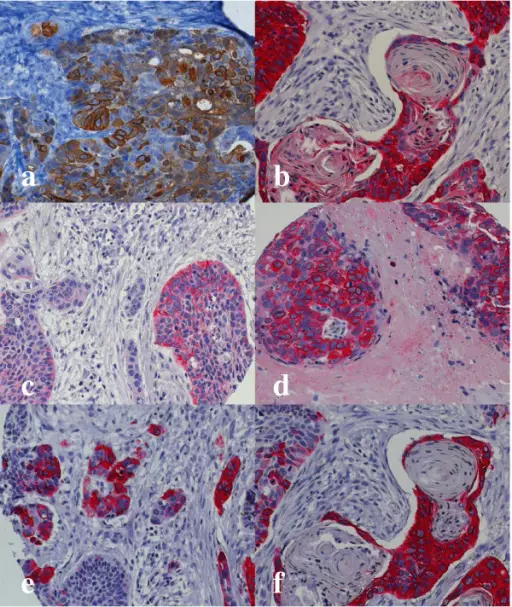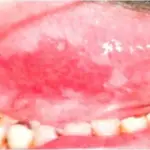Squamous Cell Carcinoma of the Oral Cavity refers to cancer occurring between the vermilion border of the lips and the junction of the hard and soft palates or the posterior one-third of the tongue.
What is the Pathology of Squamous Cell Carcinoma?
The pathology of squamous cell carcinoma is:
-Etiology: The cause of squamous cell carcinoma is UV solar radiation.
-Genes involved: Mutations in the p53 gene.
-Pathogenesis: The sequence of events that lead to squamous cell carcinoma is that the p53 protein stops cells with mutated or damaged DNA from replicating. If the p53 gene becomes mutated through the ways discussed above, then the p53 protein is rendered non-functional, and cells with damaged DNA, such as those found in squamous cell carcinoma can replicate.
-Histology: The histology associated with squamous cell carcinoma shows squamous epithelial cells arising from the epidermis and extending into the dermis the malignant cells are often large with abundant eosinophilic cytoplasm and a large, often vesicular, nucleus.
How does Squamous Cell Carcinoma Present?
Patients with squamous cell carcinoma typically affect male and female both present at the range of 50 and above. The symptoms, features, and clinical findings associated with squamous cell carcinoma include wart like growths.
How is Squamous Cell Carcinoma Diagnosed?
Squamous Cell Carcinoma is diagnosed by biopsy.
How is Squamous Cell Carcinoma Treated?
Squamous Cell Carcinoma is treated by surgical excision.
What is the Prognosis of Squamous Cell Carcinoma?
The prognosis of Squamous Cell Carcinoma is fair for initial cases but advanced squamous cell cancers have a poor prognosis with a 5-year survival rate below 40%.



